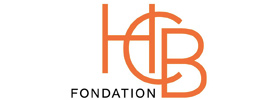
Martine Franck »
A Retrospective
Exhibition: 6 Nov 2018 – 10 Feb 2019

Fondation Henri Cartier-Bresson
79 rue des Archives
75003 Paris
+33(0)1-56802700
contact@henricartierbresson.org
www.henricartierbresson.org
Tue-Sun 13-18:30 . Wed 13-20:30
The Fondation Henri Cartier-Bresson will open its new spaces in le Marais neighbourhood in Paris on November 6, 2018 with the exhibition Martine Franck.
Martine Franck professed a wonder and celebration of life, a profound joy faced with humanity while at the same time ghting against exclusion with all the empathy she was able to show. A socially engaged photographer, Martine Franck became an activist for many of these causes she actively photographed.
Born in Antwerp in 1938, Martine Franck grew up in the UK and the United States as part of a family of collectors. A polyglot, history of art student and passionate about sculpture, it was during a long trip to the Orient in 1963 that she discovered photography. Back in Paris, she became an independant photographer, after being assistant to Gjon Mili and Eliot Elisofon, and collaborated with the major American magazines, Life, Fortune, Sports Illustrated, The New York Times and Vogue with reportages and portraits of artists. She helped set up the Vu agency, then Viva. Martine Franck was also involved in the adventure of the Théâtre du Soleil troupe from the start, with her friend Ariane Mnouchkine who had shared her oriental trip. In 1970, she married Henri Cartier-Bresson, an accomplished artist, who encouraged her to follow her own way. She later joined the Magnum cooperative, which still handles her work today.
The work on the exhibition and accompanying book was begun a long time in advance, in 2011, with Martine Franck. The photographer wanted to entrust the creation of the book and the curating of the exhibition to Agnès Sire with whom she’d been managing this Fondation for many years. The selection of photographs, the more chronological sequence, punctuated with texts, and the interview with her friend, the writer Dominique Eddé, were the main features of this vast project. In it, you can follow the thread of her engagement through series of portraits, quasi-abstract landscapes, which are bound to surprise, and a sort of remote chronical of political life.�